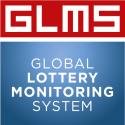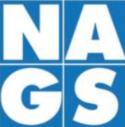
By decision of October 26, 2023, the 3rd Senate of the Higher Administrative Court rejected the complaint of a gambling organizer against the rejection of her application for interim legal protection against an order prohibiting payment services in connection with unauthorized gambling.
The applicant, who is based in Malta, offers online games of chance, which were available, among other things, on German-language websites, without having the permission required for such games under the State Treaty on Gambling, so that she was prohibited from organizing unauthorized games of chance.
The Joint Gaming Authority of the Federal States, based in Halle (Saale), has also prohibited a payment service provider from participating in payments for unauthorized gambling on the applicant’s offers. The applicant took urgent action against this prohibition of payment transactions (so-called payment blocking). The Halle (Saale) Administrative Court rejected the application on the grounds that there was no need for legal protection for the application because the applicant was not allowed to operate gambling in Germany due to the lack of a permit.
The 3rd Senate rejected the applicant’s complaint against this decision. The applicant’s need for legal protection cannot be denied because the prohibition order could have a blocking effect on deposits and withdrawals for non-banned foreign games.
However, the application is not justified in substance because the prohibition order directed against the payment service provider is lawful after the summary examination required in the expedited procedure. The regulation of Section 9 Paragraph 1 Sentence 3 No. 4 of the State Treaty on Gambling, which enables the gambling authority to prevent payment services in connection with unauthorized gambling, is in line with the fundamental right to freedom of occupation in accordance with Article 12 Paragraph 1 of the Basic Law and the fundamental freedoms under EU law free movement of payments and free movement of services.
The principle of proportionality is also not violated in view of the fact that payment blocking orders can also affect payments for non-prohibited games of chance abroad (so-called overblocking). The Senate assumes that a payment service provider cannot determine with complete certainty when making a deposit whether the respective payment is made from Germany or from abroad. However, as part of their contractual relationship with the gambling provider named in the prohibition order, payment service providers could demand evidence that the provider has taken sufficient (technical) precautions to exclude unauthorized gambling. Even if one assumes that payment service providers are ultimately forced to completely terminate business with a gaming provider, payment blocking orders could comply with the principle of proportionality. In this regard, the gaming authority has to make a discretionary decision in each individual case. In the specific case, the gaming authority’s discretionary decision, which was based on the potential danger of online gambling and the fight against the risk of addiction, cannot be objected to, especially since illegal gambling in Germany was a mainstay of the applicant’s business operations.
The decision is legally binding.
OVG Saxony-Anhalt, decision of October 26, 2023 – 3 M 72/23 –
VG Halle, decision of August 21, 2023 – 7 B 164/23 HAL –
SOURCE: Higher Administrative Court of the State of Saxony-Anhalt – Press Office.



























